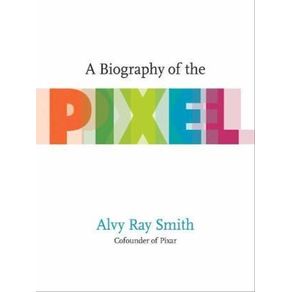The pixel as the organizing principle of all pictures, from cave paintings to Toy Story.
The Great Digital Convergence of all media types into one universal digital medium occurred, with little fanfare, at the recent turn of the millennium. The bit became the universal medium, and the pixel--a particular packaging of bits--conquered the world. Henceforward, nearly every picture in the world would be composed of pixels--cell phone pictures, app interfaces, Mars Rover transmissions, book illustrations, videogames. In A Biography of the Pixel, Pixar cofounder Alvy Ray Smith argues that the pixel is the organizing principle of most modern media, and he presents a few simple but profound ideas that unify the dazzling varieties of digital image making.
Smith's story of the pixel's development begins with Fourier waves, proceeds through Turing machines, and ends with the first digital movies from Pixar, DreamWorks, and Blue Sky. Today, almost all the pictures we encounter are digital--mediated by the pixel and irretrievably separated from their media; museums and kindergartens are two of the last outposts of the analog. Smith explains, engagingly and accessibly, how pictures composed of invisible stuff become visible--that is, how digital pixels convert to analog display elements. Taking the special case of digital movies to represent all of Digital Light (his term for pictures constructed of pixels), and drawing on his decades of work in the field, Smith approaches his subject from multiple angles--art, technology, entertainment, business, and history. A Biography of the Pixel is essential reading for anyone who has watched a video on a cell phone, played a videogame, or seen a movie. 400 pages of annotations, prepared by the author and available online, provide an invaluable resource for readers.

